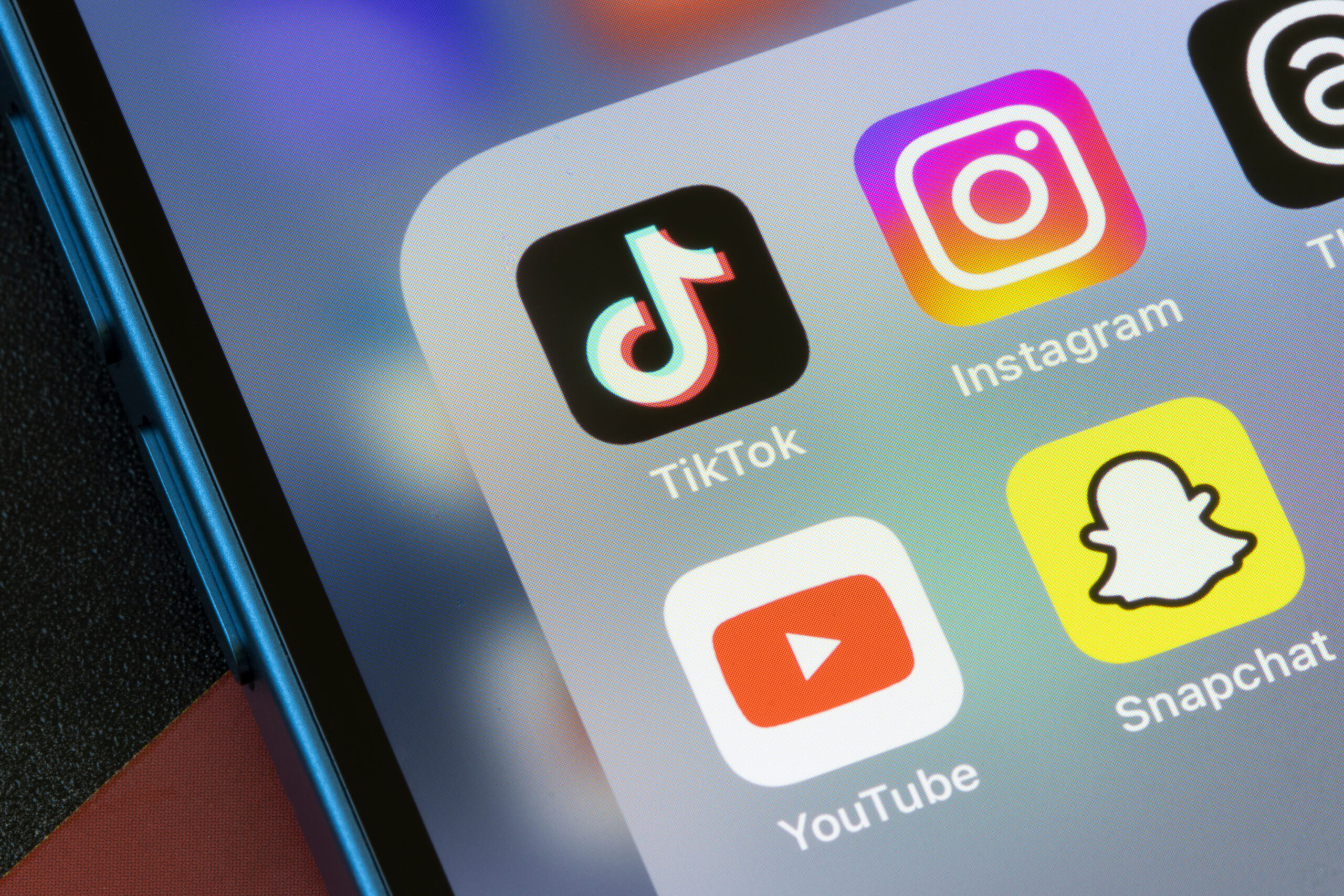Billions of people search Facebook every day, and it’s not the only social platform that can boast big figures when it comes to social search. If you’re not taking advantage of it, then you could be missing out on valuable traffic.
In this blog post, we look at the rise of the social media search engine and some of the ways you can optimise your content to make it easier to find.
What is social search?
Using social media to search for content is referred to as ‘social search’. Instead of using a search engine like Google, users are increasingly turning to social platforms like Instagram and TikTok to find the answers to their queries.
YouTube is the second biggest search engine after Google, but we’ve known this for a long time, so why has this issue risen to the fore again?
In the summer of 2002, Google released figures that suggested ‘social search’ goes beyond just YouTube. In particular, users are turning to Instagram and TikTok over Search and Google Maps for some search queries.
Social media platforms are the go-to for people looking for inspiration and researching new products and brands. So it’s absolutely essential that your content is discoverable on these platforms.
Who’s using social search engines?
Forty per cent of 18 to 24-year-olds are using social media platforms as their primary search engine, according to Google. This group is commonly referred to as ‘Gen Z’ or ‘Zoomers’.
Born between 1997 and 2012, Gen Z is credited with leading the charge on social search, but they’re not alone. HootSuite cites these statistics:
- 47% of 25 – 34 year olds use social networks for brand research
- 43% of 35 – 44 year olds, and
- 36% of 45 – 54 year olds.
Whilst there is a greater prevalence among young people, it would be a mistake to write off users in other age brackets. The key to success is audience research – invest time figuring out where your target market hangs out and how they use these platforms.
Why is social search on the increase?
People are increasingly turning to social media to provide answers to their search queries – and for good reason.
Authentic content made and distributed by real people is highly valued by users. If you’re looking for a product recommendation, you’re more likely to trust a person than a business.
That’s why it’s so important to use trust signals on your website. Listen to our CEO, Matt Janaway, talk about trust signals in this short video.
Social platforms have built-in ‘proof’ that the content is accurate. This comes in the form of comments from other users. Comments in agreement with the post give the creator even greater credibility.
By its very nature, social media content is short and snappy. It gets to the point quickly without the user having to trawl through hundreds of words to find the answer they want. That’s an attractive proposition for time-starved Internet users who want something easy to digest.
Prioritise the things people are searching for
Businesses have long understood the need to have a presence on the platforms their target markets are using. Finding and researching brands is just one of the ways people are using social search.
Increasingly, users are looking for reviews and recommendations. Young people looking for somewhere to have lunch are more likely to use TikTok or Instagram than Google Maps or Search.
What’s more, users are also more willing to buy directly through these platforms. In a recent survey, 17% of consumers said they’d bought something directly from a social platform in the previous three months (HubSpot survey 2023).
Social channels are adapting their business models in response to this. It’s now possible to buy through Facebook, Instagram, and TikTok.
There is a way to cash in on this trend
Every business should have a presence on social media (at least on the channels your target audience uses). If you’re not there, you’re missing out on opportunities to influence your market.
But just being there isn’t enough; you’ve also got to create content that resonates with your audience – AND make it discoverable. If you want your content to be found, you need to optimise it.
Unlike regular SEO, which is based almost entirely on Google’s algorithms, every social media search engine is different. Each channel has its own way of finding and retrieving content that is suited to the format, i.e., video (YouTube), images (Instagram), etc.
Keep reading for our social search optimisation tips.
How to optimise for social media search
Before you begin, do some basic keyword research. It pays to understand how people are searching for your content BEFORE you optimise it.
There are lots of paid tools that can help you do this, but simply paying close attention to the ways in which your audience talks about the topic can really help. What language are they using to describe the content?
Let’s dive into the top five platforms.
- Add keywords to your username (limited to 30 characters) and bio
- Use keywords in your captions, hashtags, and alt-tags
- Make sure the first or most highly rated comment includes your keywords
TikTok
- Keyword-rich hashtags are essential here
- TikTok transcribes all the content on its platform, so use keywords in your video
- Add keywords to your username and captions
X (formerly Twitter)
- Twitter’s search algorithm is based largely on hashtags – use them wisely!
- Add keywords to your content
- And don’t forget to optimise your handle (username) and bio
- Hashtags aren’t part of Facebook’s search algorithm (except for reels)
- Make sure your content includes your keyword(s)
- Use relevant, descriptive images and videos to support your content
YouTube
- Add your keywords to your title, description, and tags
- Make sure your video transcript (or auto-closed-captioning) includes keywords
- Use keyword-rich hashtags to help people find your videos
Of course, this is just the tip of the iceberg of the top five social search engines. If you’re serious about harnessing social search, consider using a social media marketing agency.
Social search – the key takeaway
More people are turning to social media to answer their ‘how to’ questions, find local businesses, and check out product reviews. If you’re spending time (and money) creating content that no one can find, you’re missing out on valuable traffic!
Tweak your content to suit the algorithms of social media search engines and harness the power of social search.
Continue reading: shoppable social media posts: the ultimate guide for 2024.





